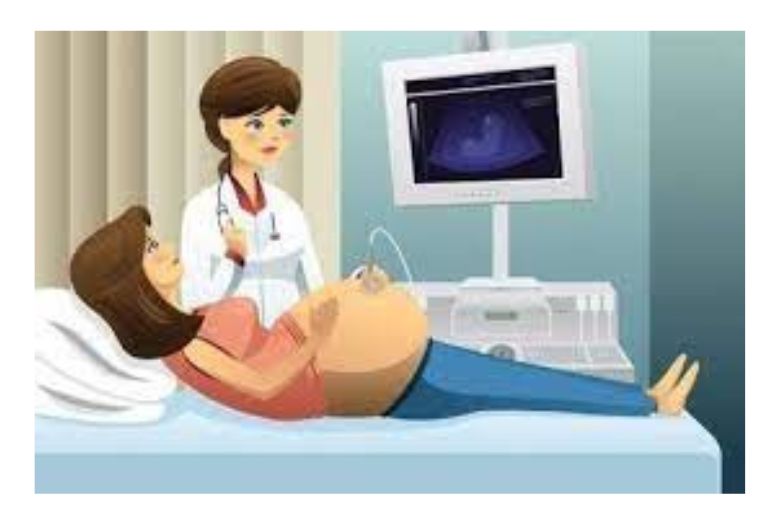
ANTENATAL CARE
Definition of antenatal care:
Antenatal care is the care of women during pregnancy. The primary aim of antenatal care is to achieve at the end of a pregnancy a healthy mother and a healthy baby.
Aims of antenatal care:
A healthy mother gets a healthy baby.
Objectives of antenatal care:
- Promote and maintain the physical, mental and social health of the mother and newborn by providing education on nutrition, personal hygiene, rest and exercise, safe sex and family planning.
- Detect and maintain complications during pregnancy, whether medical or surgical.
- Develop birth preparedness
- Help prepare the mother to breastfeed successfully, experience normal puerperium and take good care of newborn physically
Antenatal visit:
Standard visit – 14
- Every 4 weeks up to 32 weeks
- Every 2 weeks up to 32 - 36 weeks
- Every week up to 36 - 40 weeks
Intermediate visit:
- First visit before 12 weeks
- Second visit before 20-22weeks.
- Third visit before 28-32weeks.
- Fourth visit before 34-36 week
- Fifth visit before 38- full term
Minimum Visit:
- First visit - 4- 12
- Second visit 24- 26
- Third visit 36- 38 weeks.
The world health organization (WHO) technical group in 1994 recommended for all low-risk women.
- 1st visit by 16 weeks.
- 2nd visit 24-28 weeks (6 months).
- 3rd visit at 32 weeks (8th month).
- 4th visit at 36 weeks ( 9th month)
Antenatal care of first visit:
The following are to be recorded at the first antenatal visit:
1. History:
- Particulars of the patients: Name, age, occupation (also occupation of the patient's husband) address, religion
- Chief complaints
- History of past medical or surgical
- Immunization history especially about TT
- Menstrual history
- Family history
- Personal history
- Obstetric history.
- Gynaecological history
2. Examination:
- General examination: Height, weight, anaemia, jaundice, pulse, blood pressure oedema.
- CVS
- Respiratory system
- Abdominal examination: assessment of the size of the uterus
- Vaginal examination: unless contraindicated the per vaginal examination is done at the first antenatal visit before 12 weeks
3. Screen for factors and medical condition
4. Begin to develop the birth plan
5. Screen and treat Anaemia.
6. Screen and treatment of syphilis
7. Initiate prophylaxis for anaemia
8. Health education regarding danger signs and others
Investigation:
- Hb%
- VDRL, HBsAg
- Blood grouping RH
- RBS
- Urine R/M/E.
- USG of pregnancy
Antenatal care of 2nd visit:
- Symphysis – fundal height measurement to detect multiple pregnancies
Antenatal care of 3rd visit:
- Screen for pre-eclampsia, multiple gestations
- Anaemia
- Finalize the individual birth plan and danger signs
Antenatal care of 4th visit:
- Identify foetal lie
- Presentation
- Update birth plan
Lab Test:
- Blood for-
- Hb%
- VDRL, HBsAg
- Blood grouping RH
- RBS
- Urine R/M/E.
- USG of pregnancy profile.
The Nurse should provide antenatal advice. These are as follows:
Diet:
The diet should be adequate and balanced. It should provide the following:
- Calories - 3300 kcal
- Protein - 55gm
- Iron - 40gm
- Calcium - 1gm
Daily intake of fresh green leafy vegetables, fruits, milk, eggs and meat should be encouraged in order to meet the above dietary needs.
Personal hygiene:
- Daily bathing with soap
- Used loose and cotton garments
- Brushing tooth at least two times daily
- Prevention of urinary tract, infections by maintaining personal hygiene, plenty of water, using heat and clean dry cloth
- Exercise
- Education about breast
- Posture and body mechanism:-
- Avoid high hell show
- Avoid Tide garments etc.
- Rest and relaxation:
At least 8 hours of sleep at night and 2 hours after lunch for physical and mental rest.
Travel: Avoid journeys as soon as possible.
Medication:
Some drugs are avoided like
- Streptomycin.
- Antihelminthes.
- Tetracycline.
- Sedative.
- Avoid alcohol, cigarette smoking and other substances.
Sexual intercourse: This should be restricted especially during the last trimester.
Mental preparation: Psychological support to be given to the pregnant mother.
Immunization:
If the pregnant woman is not vaccinated get the TT vaccine. 1st dose at 6 months and 2nd dose or booster dose at months.
- Avoid heavy working and leafing especially 1st the trimester to avoid abortion and 3rd trimester for the prevention of premature birth
- Active participation in the family function festival, social function, festival, and social function. Services occupation if she engaged prior to pregnancy.
Warning sings:
The mother is advised to report immediately in case of the following signs-
- Fits.
- Headache.
- Blurring of the vision.
- Bleeding or discharge per vagina and
- High fever
- Any other symptoms

Comments (0)